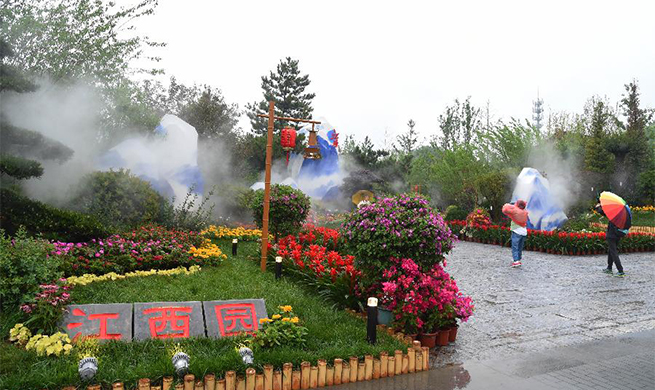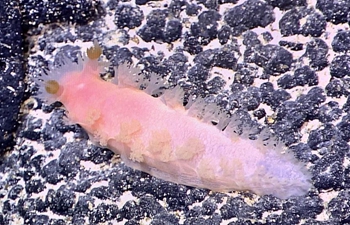SYDNEY, June 18 (Xinhua) -- In a world-first breakthrough published Tuesday, researchers have demonstrated a new way to filter contaminants from groundwater and industrial wastewater, opening the taps for billions of people in the developing world to access clean drinking water.
Headed up by the Australian government's peak science body, the Commonwealth Scientific and Industrial Research Organisation (CSIRO), the collaboration also included Australia's Monash University, the University of Melbourne, and the University of Texas in the United States.
In their study, the team found a way to separate negatively-charged ions, known as anions, from water using Metal-Organic Frameworks (MOFs).
Made up of advanced nanostructural materials, MOFs contain molecular-sized pores that can store, separate, release or protect many substances.
With this in mind, the research team developed a MOF with precisely tuned pores of a size and chemistry to be compatible with the selected anion.
This means that when water passes through the filter, the selected anions are attracted to the pores and easily pass through while the larger anions get trapped.
In other water filtering methods, it has previously been impossible to separate different kinds of anions in one process. In the past, all anions had to be removed then filtered and put back, resulting in a costly and energy-intensive undertaking.
"Based on our research, we now have the capability to produce simple and affordable water filters that can be used safely and effectively anywhere in the world," Professor Huanting Wang from the Department of Chemical Engineering at Monash University said.
"This is a significant outcome for people in developing countries who lack access to safe, clean drinking water, and for industries who are increasingly seeking ways to reduce the cost of their environmental impact."
"Our findings also prove we have the capability to determine the most effective filtering material and method to suit a specific material, or a particular industry need."
According to the World Health Organization, many developing countries' groundwater fluoridation levels are in excess of 1.5 mg per liter, the standard which is deemed safe for human consumption.
Along with the potential to fix this problem, scientists also said there are massive implications for the agriculture industry which is "increasingly searching for ways to clean up water pollution caused by fertilizer and pesticides, particularly in areas where contaminated run-off is at risk of entering rivers and the ocean."
"This research outcome is a great example of using high-tech, next-generation technologies to assist in the transition to a circular economy, where long-term management of wastes can generate new industries, while also protecting the environment," Associate Professor Matthew Hill from the CSIRO said.













